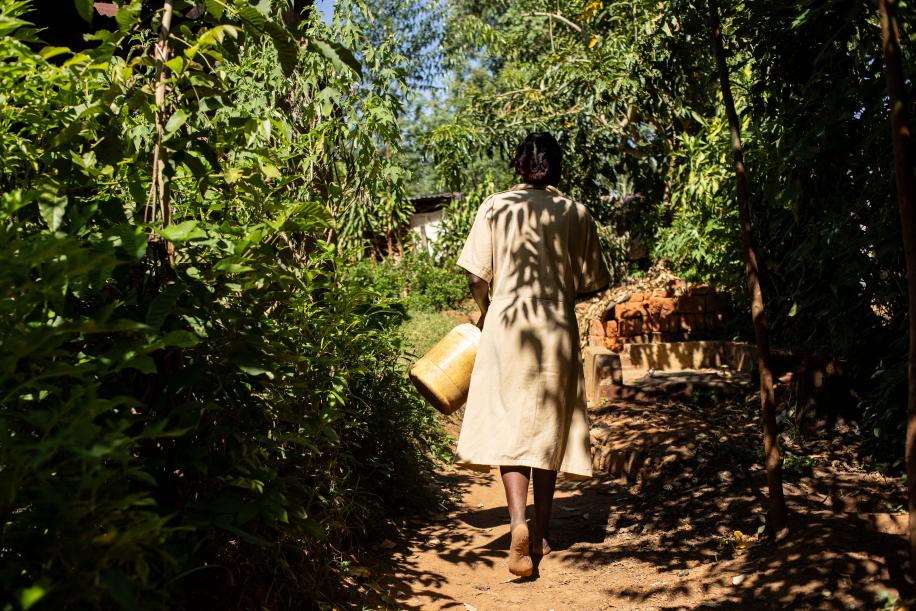

Rose Nekesa walks to collect water from a local well on February 14, 2024. Due to dirty well water and flooded latrines, many families are facing an increase in diseases. Because of the flooding of their own small plot of land, Rose and Elkana can’t plant maize. Before they began planting eucalyptus (which absorbs a lot of water), their land and home used to fill with water.
The Effects of Climate Change on Families and Casual Laborers in Rural Kenya
Photographer: Emily Whitney
Exhibit Title: The Effects of Climate Change on Families and Casual Laborers in Rural Kenya
Location: Kenya
Since climate change has brought increased and unpredictable rains to Kenya in the past few years, the planting and harvesting seasons have been disrupted. Vulnerable families are placed at further risk when their crops flood—they don’t have enough food to eat, let alone enough food to sell to make a profit, so they are forced to look for other casual work. But living in Kitale, the “breadbasket of Kenya,” much of the casual labor work is agricultural, so when rain cycles become unpredictable and heavier than usual, casual work opportunities become scarce. Many large scale farms cut casual laborers since their own yields have been smaller, which drives more people into poverty—creating more families whose children cannot attend school and have no access to medical care. Even other nearby countries depend on Kitale's supply of crops, so when there is a lower yield, they also go hungry, making global warming's impact in Kenya into an international problem.
emilywhitney.org
@emilywhitney.photo
Make Comment/View Comments